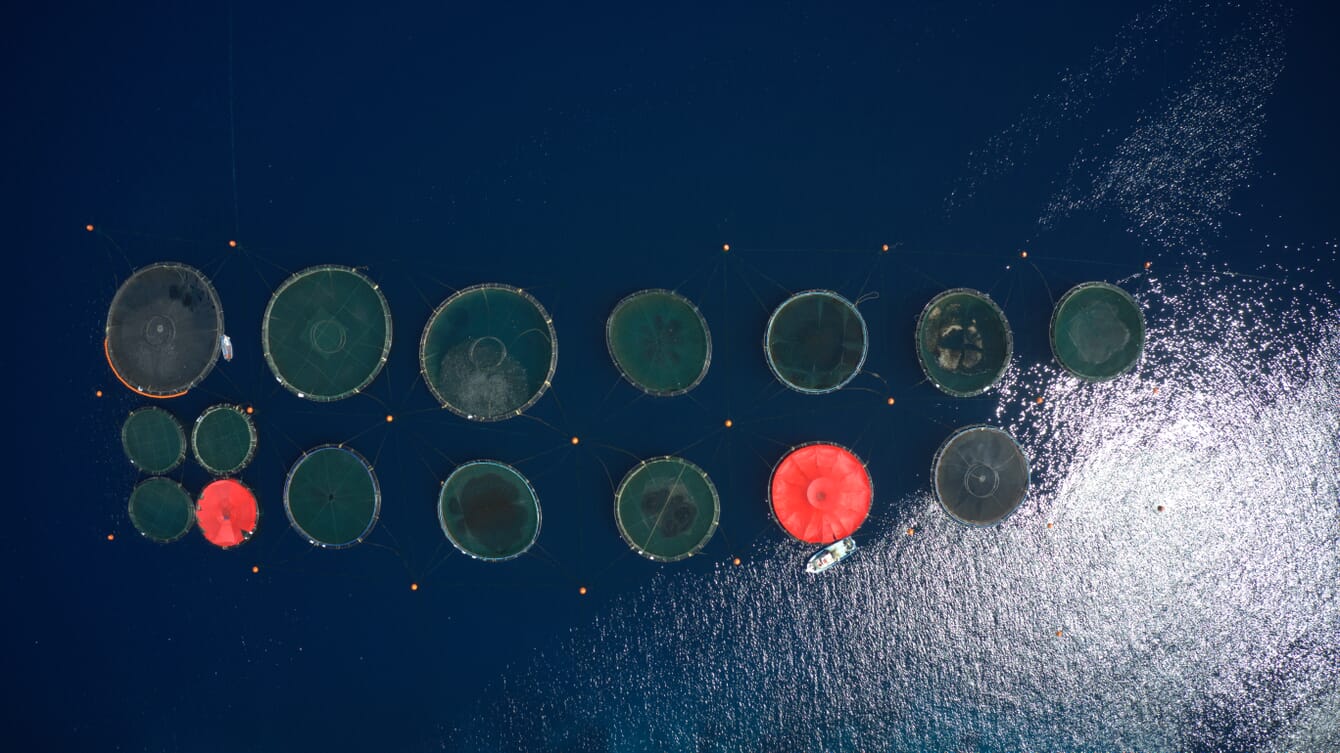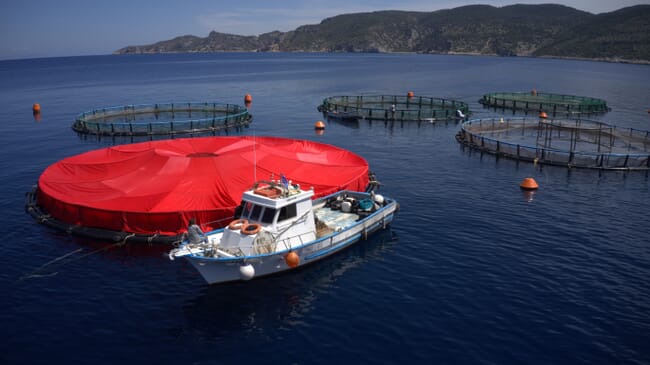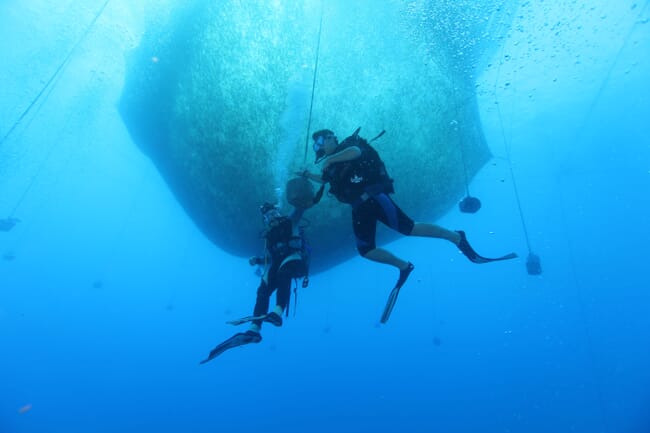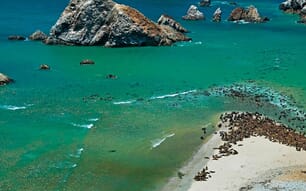
© Blutopia
Lamar and Blutopia are family-run enterprises on the picturesque island of Rhodes, which blend sustainable aquaculture with marine ecotourism.
Established by the Chatzinikolaou family, these companies present an example of how to balance environmental stewardship with business diversification. Lamar, which was established in 2016, focuses on the cultivation of high-quality fish. Meanwhile, Blutopia has been focused on marine ecotourism and diving for over 15 years.
It's a family-run business, with husband-and-wife Savvas and Mariza Chatzinikolaou supported by their two sons: Lazaros, a diving instructor and commercial boat captain, oversees the fish processing station, while Christos is a diving instructor and skipper of the Blunatura. Together, they lead a team of approximately 15 employees.
The common objective is to educate people about aquaculture and debunk the misconceptions about the sector. They also aim to set an example of how SMEs can diversify successfully, promoting conservation and sustainability and allowing visitors to enjoy the beauty of marine life, and understand the critical role of sustainable aquaculture.
As Savvas reflects: "We are proud to show our fish farm and environment to tourists and invite them to taste our fish. Our vision is to become a global showcase for aquaculture sustainability and best practices for a fish farm attraction."
Lamar operates within a Natura 2000 protected area, chosen for its pristine water quality and favourable conditions for fish growth. The farm spans 10,000 square metres and has 18 cages of varying sizes – 40m, 60m, and 80m in circumference. This capacity enables Lamar to produce 320 tonnes of fish annually, including gilthead sea bream, sea bass, red porgy and brown meagre.
Production aims to meet the demands of the market, with each harvest yielding approximately 2-6 tonnes. To ensure a steady and fresh supply, Lamar conducts about three harvests in a week – demand increases in the summer and slows down in the winter.
Significant milestones include rebuilding the farm with EU funding and collaborating with research institutes like HCMR and various universities across Europe and the US.
The company also operates a fish processing facility, where the fish are gutted, filleted, and packed according to demands.

© Blutopia
Blutopia
Meanwhile Blutopia offers a unique ecotourism experience near Lamar’s aquaculture facilities, off the southernmost tip of Rhodes. Specialising in environmental education, particularly for younger generations, Blutopia aims to raise awareness about the importance of preserving the Mediterranean's natural beauty. Their team, comprising marine biologists, diving instructors, and a sustainable aquaculture expert, delivers an immersive learning experience through a variety of diving and educational tours.
As Dr Tasos Baltadakis, who leads Blutopia’s marine life experiences, explains: "We want visitors to understand what aquaculture actually looks like and how it should be done in such a diversified way so that SMEs survive and become profitable in the future. Through Blutopia, we bring people close to the ocean, making them sense the beauty and complexity of the sea, enjoy marine life experiences, and truly feel its essence."
It conducts multiple trips a week including activities such as diving, snorkelling, and swimming, all designed to showcase local marine wildlife as well as the operations of the farm.

© Blutopia
How to manage two businesses
Managing the dual operations of aquaculture and ecotourism is a complex task which requires proper balance and coordination. They have established separate dedicated teams for each operation, ensuring that high standards are maintained in both areas. The aquaculture team focuses on sustainable fish farming, managing sea cages and following HACCP standards. Meanwhile, the ecotourism team, composed of marine biologists and diving instructors, designs and conducts educational tours and activities like diving and snorkelling. Their planning ensures that tours do not interfere with fish farming operations, allowing both aspects of the business to thrive.
Despite challenges such as regulatory hurdles, the companies say that they have received plenty of positive feedback, showcasing their success in integrating sustainability with engaging public education. According to the Chatzinikolaou family, visitors – primarily from Europe but also from other parts of the world – have praised the educational and immersive nature of the tours, with some returning multiple times.
Future prospects
Looking ahead, the Chatzinikolaous have ambitious plans to enhance and expand their offerings. On the tourism side, they aim to introduce longer experiential stays. They also plan to create an underwater marine biology class and establish a laboratory dedicated to exploring the cultivation of various marine species.
On the aquaculture side, Lamar is planning to add further value to its products, processing fish fillets into a variety of products and set up a restaurant where guests can enjoy fresh, organic produce directly from the farm.
The companies believe their model can inspire other aquaculture businesses to incorporate tourism, thereby spreading the benefits of environmental education and sustainable practices throughout the industry.




